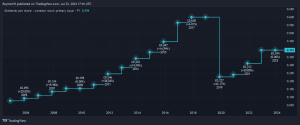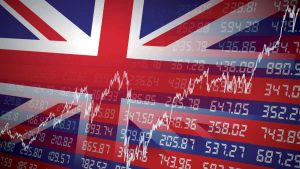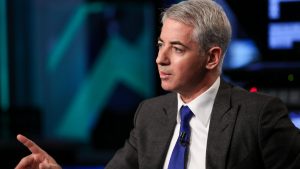St. Louis Federal Reserve President James Bullard said Thursday there has been too much “mindshare” devoted to the idea that inflation will moderate at some point.
“Overall, I would say there’s been too much emphasis and too much mindshare devoted to the idea that inflation will dissipate at some point in the future,” Bullard said, during a town hall at Columbia University.
“There are arguments to be made for that. I think that’s a possibility…but I think that’s actually a minority position,” Bullard said.
Instead, the St. Louis president said the Fed needed to “manage the risk” that inflation does not dissipate.
The core rate of the Fed’s favorite inflation measure — the personal consumption expenditure price index — has risen to a 4.9% annual rate in December.
Bullard said this rate “does not have the reputation of coming down naturally.”
“So we’re way on one side of the ship and I think we have to re-center. I want to re-center faster than some of my colleagues,” Bullard said.
Bullard has called for faster interest rate hikes this year than his colleagues.
He said he wants the Fed to increase its policy rate by 1% by July 1 over the next three policy meetings.
Bullard said these first moves “are relatively cheap,” in other words the moves are already priced-in, he said.
“I think there is actually widespread agreement across financial markets” that the Fed should “get going,” Bullard said.
The Fed’s policy rate has been at zero since the pandemic. So these rate hikes are not actually “tightening,” but going away from the ultra-easy level, he stressed.
Fed officials view a 2% federal funds rate as the level that their policy rate that does not boost or dampen economic growth.
As a result, people who warn that the Fed rate hikes will cause a recession need to “slow down,” Bullard said.
“We’re just talking about getting off the very lowest policy rate setting,” he said. “I don’t think there’s much risk of recession coming strictly from that,” he said.
Bullard said he wants the Fed to start to shrink its $9 trillion balance sheet in the second quarter.
At first there should be a natural runoff of maturing securities, Bullard said. But if inflation is stubbornly high, the Fed should have a “plan B” to sell some of the longer-term bonds from its portfolio to push longer-term interest rates higher.
U.S. stocks
DJIA,
SPX,
were down on Thursday as the Biden administration warned that a Russian invasion of Ukraine was imminent. The geopolitical tension caused the yield on the 10-year Treasury note
TMUBMUSD10Y,
to fall below 2%.
This post was originally published on Market Watch






